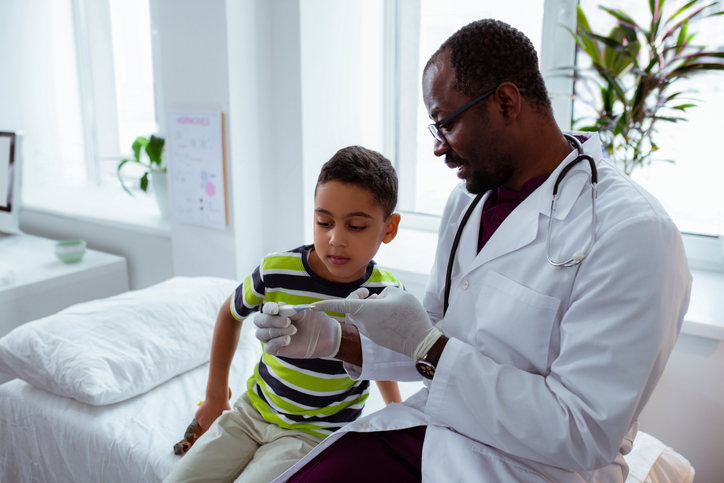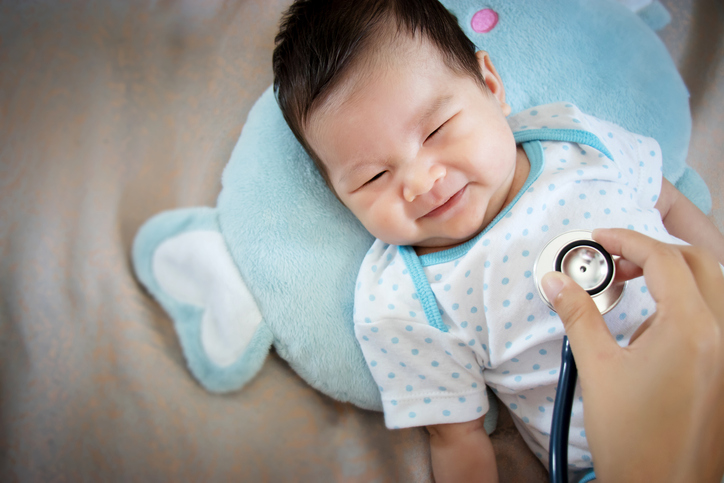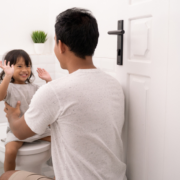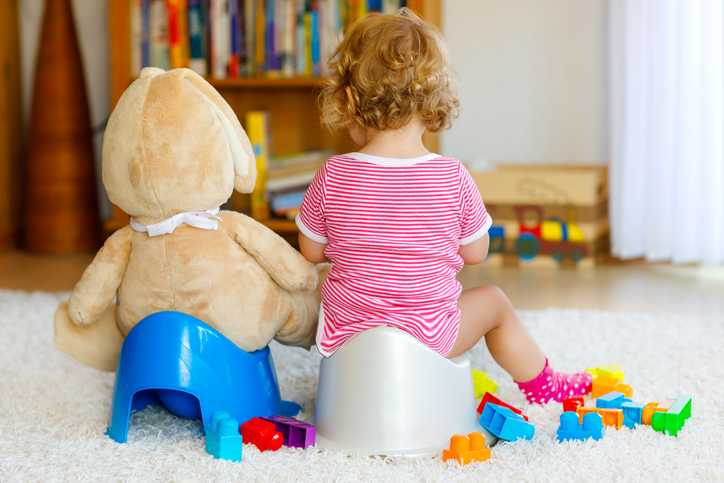Georgia Urology Discusses Nocturnal Enuresis
By Kristin Wellman, MSN, RN, CPNP-PC
As a nurse practitioner here at Georgia Urology, I commonly have kids come into the office complaining of bedwetting, also called nocturnal enuresis. Although this medical condition is not life-threatening it can be a socially, emotionally, and financially burdensome for families. My goal is to briefly review the definition, common causes, and treatment options.
Definition
Involuntary enuresis (wetting) that occurs while sleeping past the age of six years old. Prior to the age of six nocturnal enuresis can be a normal finding. There are two types of enuresis:
- Primary Enuresis: Toilet trained children who have never experienced a dry night. This occurs in roughly 80 percent of diagnosed patients.
- Secondary Enuresis: Toilet trained children who develop enuresis after having several months or years where they’ve remained dry overnight. This occurs in roughly 20 percent of patients.
Common Causes for Primary Nocturnal Enuresis
Symptoms often are described as occurring every night.
- Genetics: Children are at an increased risk to develop nocturnal enuresis if one or both parents were previously noted to have symptoms.
- Delayed Central Nervous System Development: Children often do not get the signal from the central nervous to wake as the bladder becomes full. This component of nocturnal enuresis often improves with increased age.
- Antidiuretic hormone (ADH): ADH acts on the renal system to reduce urine production overnight. Children with this disease can produce less ADH while sleeping. Decreased ADH levels will increase urine production and lead to dilution of urine. Symptoms often improve with age.
Common Causes for Secondary Nocturnal Enuresis:
Symptoms can be described as infrequent.
- Voiding Dysfunction: Children who experience urgency, frequency or daytime urinary incontinence may also experience bedwetting. The bladder will mimic its symptoms during the day to carry over at night.
- Constipation: Infrequent bowel movements, hard stools along with incomplete emptying of the colon will increase bladder irritation leading to nocturnal enuresis.
- Sleep Apnea: Obstructive sleep apnea has been linked to nocturnal enuresis. This may be due to changes in the body’s hormones.
- Urinary Tract Infection (UTI): In rare cases, UTIs have been linked to nocturnal enuresis. Often times treating the infection improves enuresis.
- Obesity: Obesity increases the risk for obstructive sleep apnea as well as type two diabetes, both of which can contribute to nocturnal enuresis.
Treatment
Nocturnal enuresis in most patients resolves on its own. It’s more prevalent in males when compared to females. Males can also experience a longer duration of their symptoms when compared to females. Most patients will have spontaneous resolution of their symptoms by their adolescent years. When considering a treatment plan it should meet the needs of the family at that time and be followed closely within our clinic.
Common treatment options include:
- Bed Wetting Alarm
- Addressing bladder and bowel dysfunction
- Medications
To make an appointment with Georgia Urology’s pediatric team, schedule online or call one of our office locations.
References
Baskin, L., & Kogan, B.(2005).Handbook of Pediatric Urology.Philadelphia, PA:Lippincott Williams & Wilkins.









